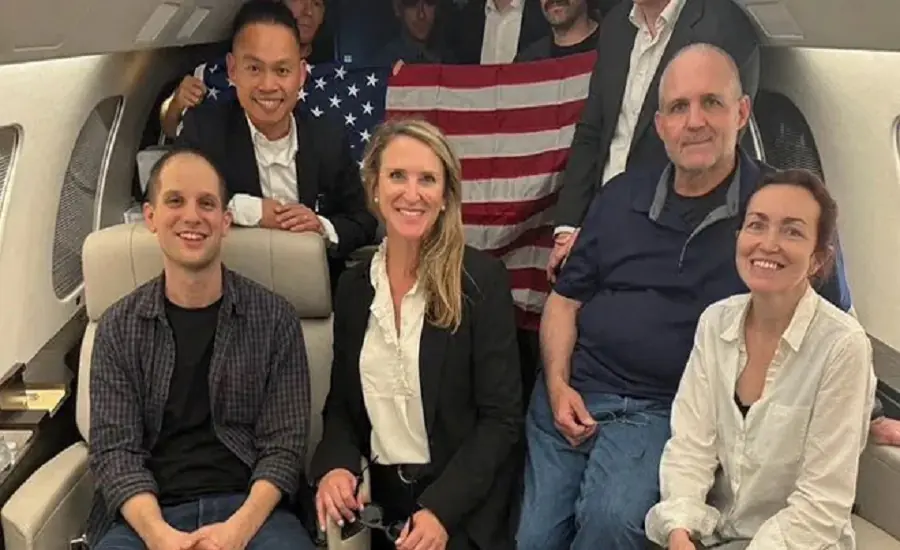In a landmark event, the United States and Russia have completed the largest prisoner swap since the end of the Cold War, resulting in the release of Wall Street Journal reporter Evan Gershkovich and former U.S. Marine Paul Whelan. This complex exchange involved multiple countries and freed over two dozen individuals.
Key Takeaways
- The largest US-Russia prisoner swap since the Cold War.
- Freed individuals include Evan Gershkovich, Paul Whelan, Alsu Kurmasheva, and Vladimir Kara-Murza.
- The exchange involved seven countries and over two dozen prisoners.
- The swap was facilitated by Turkey and included significant concessions from Germany.
The Prisoner Swap
The prisoner swap, which took place in Ankara, Turkey, involved the release of more than two dozen prisoners from the United States, Germany, Poland, Slovenia, Norway, Russia, and Belarus. Among those freed by Russia were Wall Street Journal reporter Evan Gershkovich, former U.S. Marine Paul Whelan, Radio Free Europe/Radio Liberty journalist Alsu Kurmasheva, and Russian opposition politician Vladimir Kara-Murza.
International Reactions
Vice President Kamala Harris praised the courage of the released Americans, while President Joe Biden thanked Turkish President Recep Tayyip Erdogan for facilitating the exchange. European leaders also welcomed the release, with European Council President Charles Michel and European Commission chief Ursula von der Leyen criticizing Moscow for its actions.
The Released Prisoners
Americans
- Evan Gershkovich: Wall Street Journal reporter arrested in March 2023 on espionage charges.
- Paul Whelan: Former U.S. Marine arrested in 2018 on espionage charges.
- Alsu Kurmasheva: Radio Free Europe/Radio Liberty journalist detained for failing to register as a foreign agent.
- Vladimir Kara-Murza: Russian opposition politician and U.S. green card holder imprisoned on charges of treason.
Others
- Five German citizens
- Seven Russian citizens
- One German national arrested in Belarus
Concessions to Russia
One of the significant concessions to Russia was the release of Vadim Krasikov, a convicted Russian assassin. Germany’s decision to release Krasikov was described as a “difficult decision” by German Chancellor Olaf Scholz, who emphasized the importance of protecting German citizens and showing solidarity with the U.S.
Political Reactions
The swap has garnered mixed reactions. While many celebrated the release of the prisoners, some U.S. lawmakers warned that the exchange might encourage Russian President Vladimir Putin’s hostage-taking diplomacy. Former President Donald Trump criticized the Biden administration’s negotiators, calling them an “embarrassment.”
Conclusion
The historic prisoner swap between the United States and Russia marks a significant diplomatic achievement but also raises questions about future international relations and the potential for further hostage-taking. The release of high-profile individuals like Gershkovich and Whelan brings relief to their families and supporters, but the complexities and concessions involved in the exchange highlight the ongoing challenges in U.S.-Russia relations.







